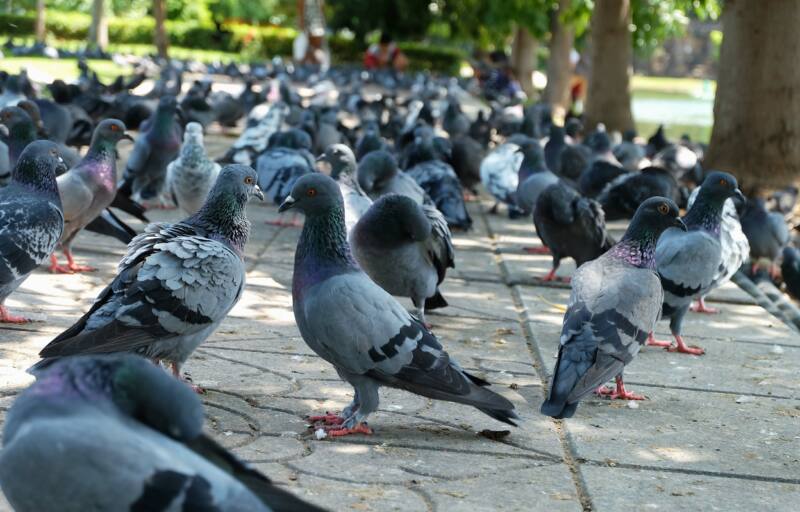You might not have much of an opinion about pigeons unless you live in a big city — and if you do, that opinion is probably a bad one. These cooing, eternally hungry birds are such a common sight in many parks that it’s easy to dismiss them, but a scientific study is shedding new light on their extraordinary capacity to learn new skills.
Two leading professors of psychology at the University of Iowa and Ohio State University conducted tests on 24 pigeons, presenting them with pairs of different images like concentric rings or lines. (This plays to the bird’s strengths, as they have exceptional vision.) Next to each image was a button to peck, one of which would give the bird food.
As you might expect, the pigeons learned to recognize the image that would result in a feeding. But they also learned, with increasing accuracy, to associate similar images with the food. Through simple trial and error, they would learn to do simple tasks associated with the images and improved the accuracy of their recognition from 55% to 95%.
MORE: Researchers taught parrots to video chat and now they call each other

This kind of training involves something appropriately called associative learning. It’s the same method employed in the famous Pavlov’s Dog experiment, and it’s also the same trick that lets artificial intelligence platforms like ChatGPT mimic human speech — on a much larger scale, of course. AI bots are constantly processing vast rivers of data at great speed, but according to this study, pigeons are slowly but surely using this method to recognize faces and places with great accuracy. Let’s not forget that pigeons make great messengers and are one of the few animal species that can spot themselves in a mirror.
“Pigeon behavior suggests that nature has created an algorithm that is highly effective in learning very challenging tasks,” said Edward Wasserman, co-author of the study.
Chalk this one up as another interesting thing scientists have discovered about birds lately!
Any products or services mentioned above were selected independent of sales and advertising. However, Simplemost may receive a small commission from the purchase of any products or services through an affiliate link to the retailer's website.
This story originally appeared on Simplemost. Check out Simplemost for additional stories.


